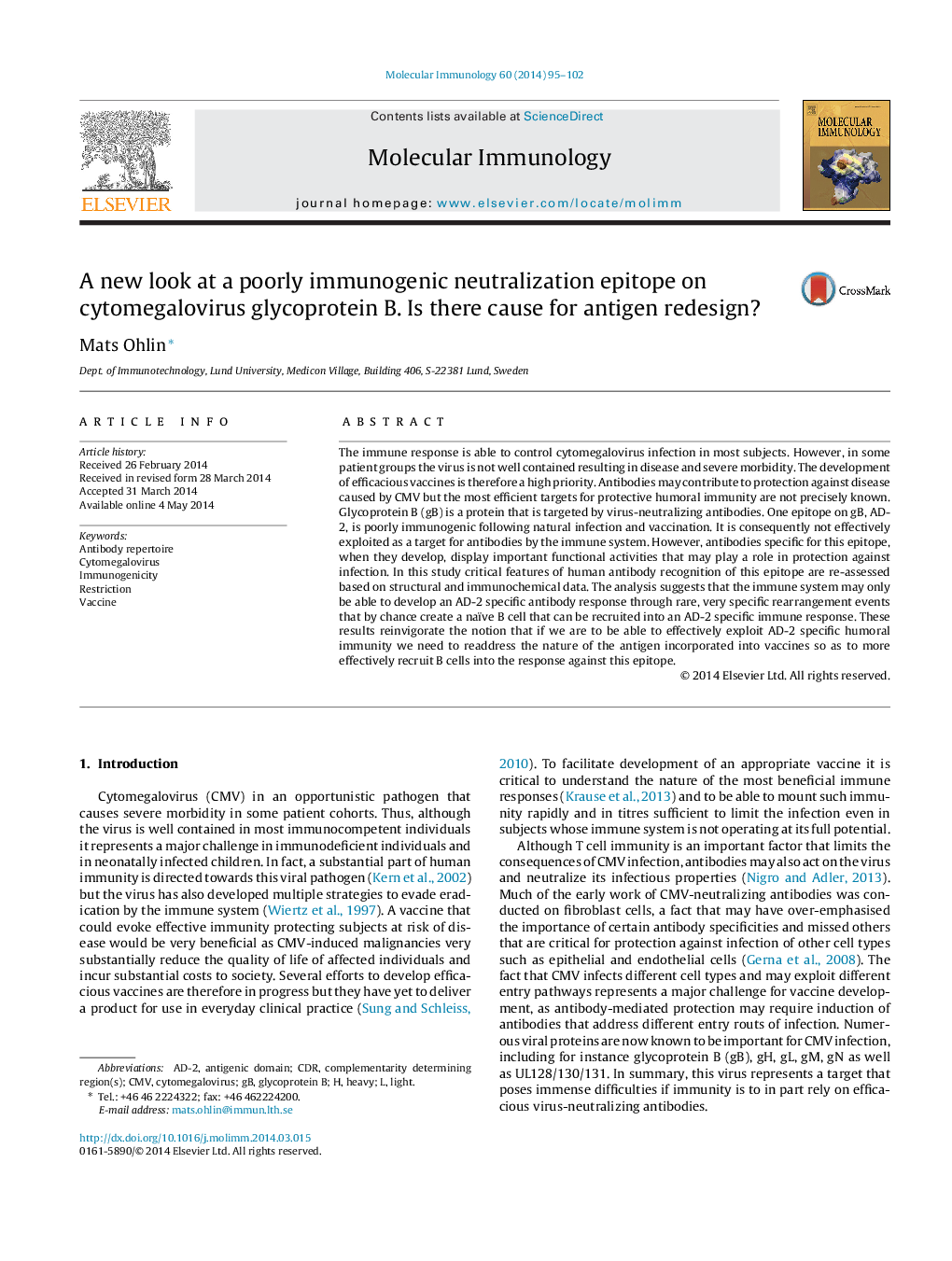| Article ID | Journal | Published Year | Pages | File Type |
|---|---|---|---|---|
| 2830822 | Molecular Immunology | 2014 | 8 Pages |
•Cytomegalovirus glycoprotein B AD-2-specific human IgG is restricted in diversity.•Important features of such antibodies are not encoded by germline genes.•Restricted features of paratopes relate to poor epitope immunogenicity.•Hypothesis: antigen redesign may improve vaccine-induced humoral immunity.
The immune response is able to control cytomegalovirus infection in most subjects. However, in some patient groups the virus is not well contained resulting in disease and severe morbidity. The development of efficacious vaccines is therefore a high priority. Antibodies may contribute to protection against disease caused by CMV but the most efficient targets for protective humoral immunity are not precisely known. Glycoprotein B (gB) is a protein that is targeted by virus-neutralizing antibodies. One epitope on gB, AD-2, is poorly immunogenic following natural infection and vaccination. It is consequently not effectively exploited as a target for antibodies by the immune system. However, antibodies specific for this epitope, when they develop, display important functional activities that may play a role in protection against infection. In this study critical features of human antibody recognition of this epitope are re-assessed based on structural and immunochemical data. The analysis suggests that the immune system may only be able to develop an AD-2 specific antibody response through rare, very specific rearrangement events that by chance create a naïve B cell that can be recruited into an AD-2 specific immune response. These results reinvigorate the notion that if we are to be able to effectively exploit AD-2 specific humoral immunity we need to readdress the nature of the antigen incorporated into vaccines so as to more effectively recruit B cells into the response against this epitope.
